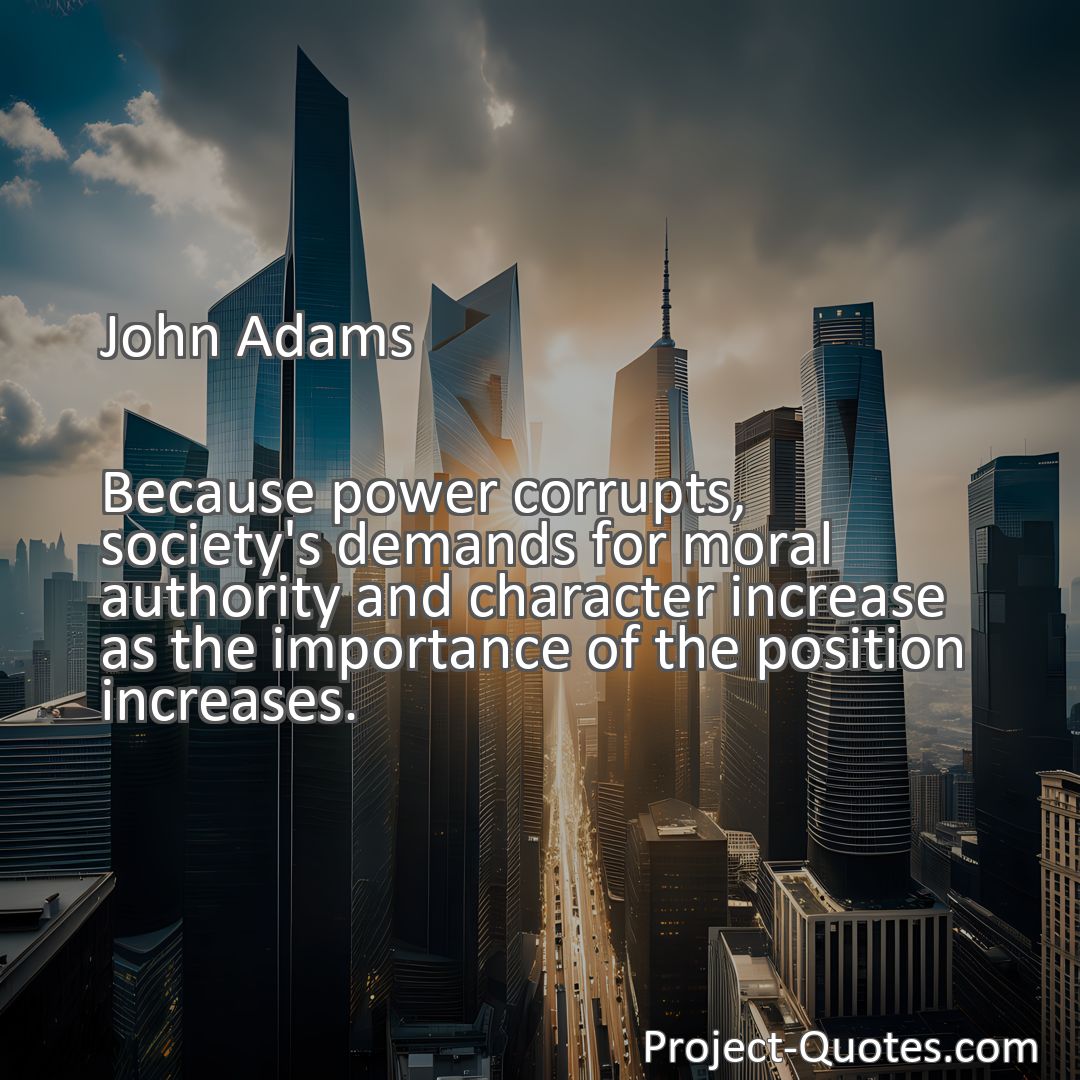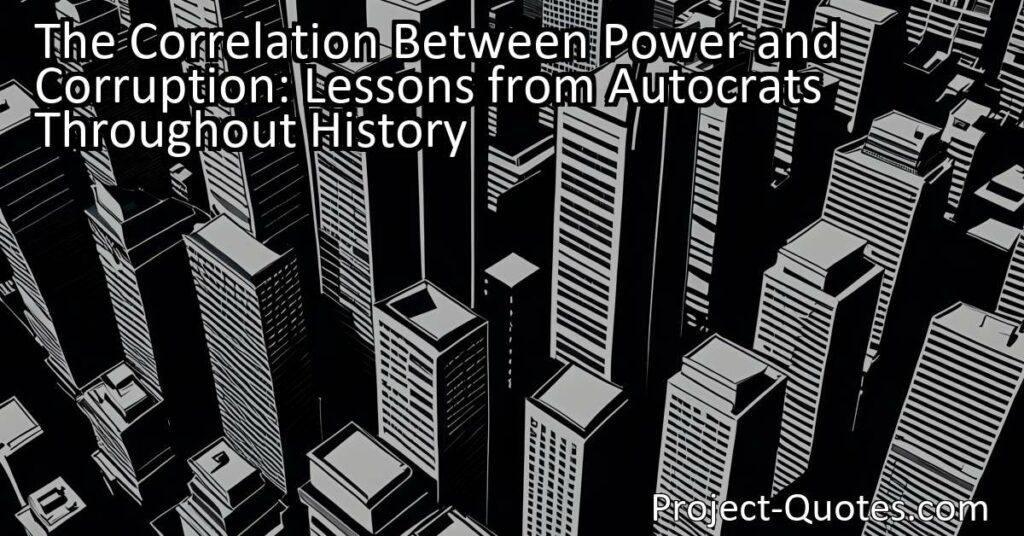John Adams
Throughout history, the actions of autocrats serve as cautionary tales, highlighting the dangers of power and the need for moral authority and character. Examples like Adolf Hitler and Joseph Stalin demonstrate the detrimental effects of power unchecked, leading to oppressive regimes and the erosion of moral values. As we navigate the complexities of the modern world, it becomes crucial to prioritize ethical conduct and integrity in order to create a more just and equitable society.
Table of Contents
- 1 Because power corrupts, society’s demands for moral authority and character increase as the importance of the position increases.
- 2 John Adams
- 3 Meaning of Quote – Because power corrupts, society’s demands for moral authority and character increase as the importance of the position increases.
- 4 Freely Shareable Quote Image
- 5 Related
In the words of John Adams, one of the Founding Fathers of the United States, “Because power corrupts, society’s demands for moral authority and character increase as the importance of the position increases.” Adams captured a timeless truth about human nature and the delicate balance between power and integrity.
The concept of power corrupting individuals has been observed throughout history. Whether in politics, business, or even within smaller social circles, the allure of power can lead individuals down a path of moral compromise and ethical transgressions. As individuals ascend to positions of authority, the temptation to abuse that power often becomes harder to resist.
The correlation between power and corruption is perhaps most evident in the world of politics. Adams, who himself served as the second President of the United States, witnessed firsthand how the seductive nature of power could erode an individual’s morality. In the pursuit of political success, politicians may be swayed by the need to make compromises that contradict their own values, or worse, engage in unethical behavior for personal gain.
This dynamic is not limited to the realm of politics alone. In business, the pursuit of power and wealth can frequently lead individuals to prioritize personal gain over ethical considerations. Such behavior often makes headlines, where we read about corporate executives engaged in fraud, embezzlement, or dishonest practices. The higher up the corporate ladder one climbs, the more opportunities for corruption arise, making moral character all the more vital in these positions of influence.
Adams’s quote touches on an important aspect of human society the increased demand for moral authority and character as the importance of a position grows. It is natural for society to hold those in positions of power to a higher standard. When a leader’s decisions and actions can have far-reaching consequences on the lives of many, society rightfully demands integrity and ethical conduct.
Why do the demands for moral authority and character increase as the importance of a position rises? The answer lies in the notion of trust. When people entrust an individual with power, they do so with the expectation that this person will act in their best interest. They believe that this individual will make decisions guided by strong moral principles and ethical considerations. As the stakes become higher, society becomes increasingly wary of potential abuses of power, and thus, the need for moral authority and character becomes more pressing.
Moreover, individuals in positions of power often serve as role models for others. Whether consciously or not, people look up to those in positions of authority as examples of how to navigate the complexities of life. When leaders demonstrate integrity and moral character, it sets the tone for others to follow suit. On the other hand, when leaders succumb to corruption, it can send a dangerous message that unethical behavior is acceptable or even necessary for success.
Prominent examples from history demonstrate the significance of leadership character when power is concentrated. The likes of Mahatma Gandhi, Nelson Mandela, and Martin Luther King Jr. are revered for their unwavering commitment to justice, equality, and the well-being of their fellow citizens. These leaders understood that true power comes from acting with integrity and standing up for what is right, even in the face of adversity. Their moral authority enabled them to inspire millions and effect lasting change.
In contrast, dictators and autocrats throughout history offer cautionary tales of what happens when power corrupts. Whether it is Adolf Hitler, Joseph Stalin, or more recent examples like Muammar Gaddafi or Robert Mugabe, their thirst for power led to oppressive regimes, widespread human rights abuses, and the erosion of moral values within their societies. These leaders exemplify the dangers of unchecked power and the detrimental effects it can have on the fabric of a nation.
In conclusion, John Adams’s quote serves as a poignant reminder of the inherent risks associated with power and the increased demands for moral authority and character that society rightfully places on individuals in positions of importance. History has repeatedly shown us that power can corrupt even the most well-intentioned leaders. As we navigate the complexities of the modern world, it becomes ever more crucial to uphold and prioritize ethical conduct and integrity. Only through the cultivation of moral character and the expectation of leaders who embody these principles can we hope to create a more just and equitable society.
I hope this quote inspired image brings you hope and peace. Share it with someone who needs it today!


